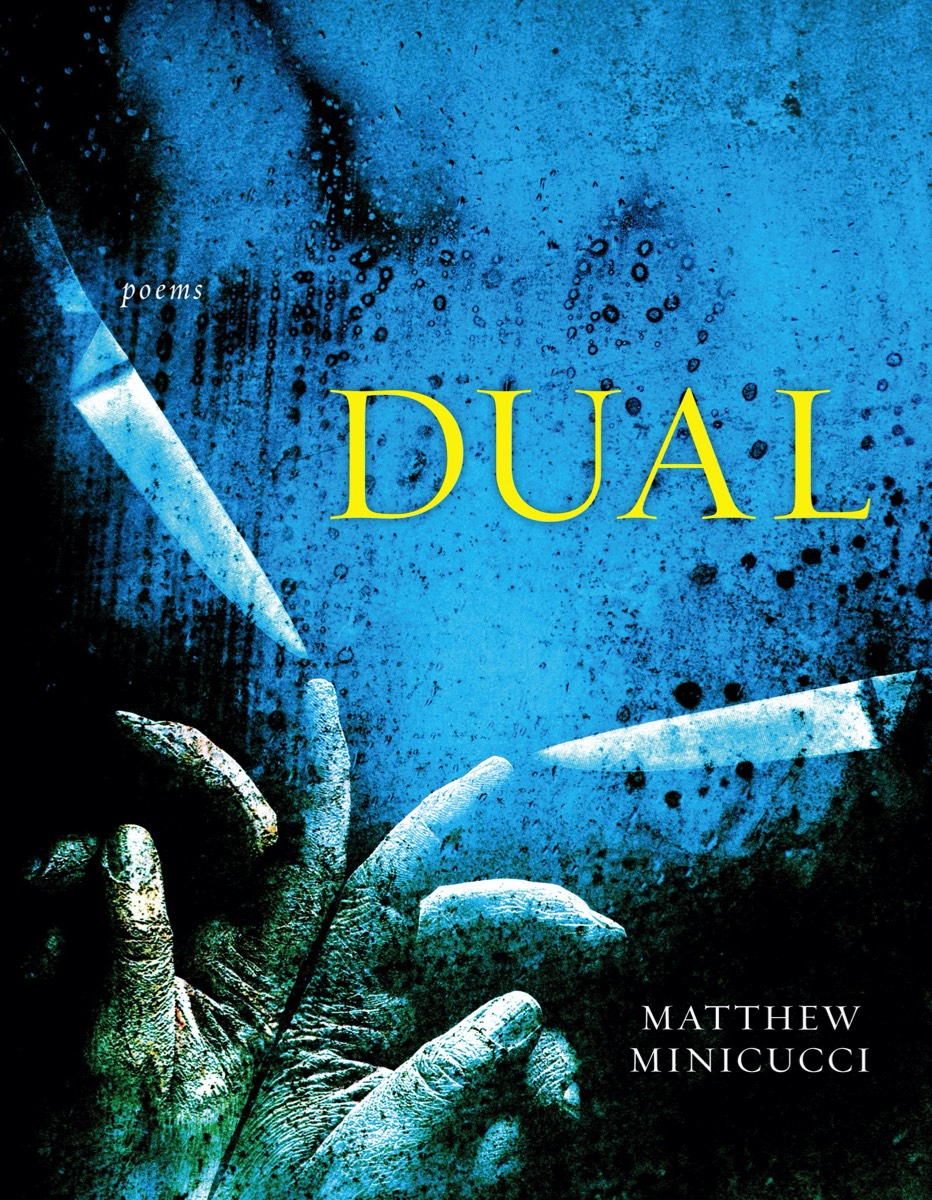Forthcoming 10.15.23 from Acre Books
#Dual

A poetry collection examining masculinity, aggression, and violence.
In his fourth poetry collection, Matthew Minicucci examines masculinity and gun violence as he brings to life the grammatical concept of the dual, a number that is neither singular nor plural, now lost in English but present in other languages both extant and ancient.
The poems’ forms fittingly include the elegy, palinode, and contrapuntal, which is both a single poem and two poems intertwined. They align contemporary moments with key texts from “western” literatures, including ancient Greek epic, in a way that helps us resee the aggression of young men; “the world kills kind boys,” Minicucci writes, and “we bury the bodies inside men.”
Minicucci recategorizes our idea of “West,” western canon, and the Old West and its bullets, next to modern-day landscapes in Utah, Oregon, Washington, California, and Hawai’i. Just as the settler imaginary gives us two ways to consider mythologies of the Old West—an empty landscape of promise or homelands encroached upon—so, too, does nostalgia. Whether memorializing a woodworking grandfather or poets Brigit Pegeen Kelly and James Longenbach, Dual notes that loss has a double vision. While weighty in subject, Dual’s poems make room for unexpected moments of lightness, such as when the speaker compares the complications of love to “reading the Iliad and realizing, sure, there's anger, // but before that there’s just a lot of camping.”
The book argues, in the end, that there is an unalienable dual between the observer and the observed, the self and the self as confessed to another.
The poems’ forms fittingly include the elegy, palinode, and contrapuntal, which is both a single poem and two poems intertwined. They align contemporary moments with key texts from “western” literatures, including ancient Greek epic, in a way that helps us resee the aggression of young men; “the world kills kind boys,” Minicucci writes, and “we bury the bodies inside men.”
Minicucci recategorizes our idea of “West,” western canon, and the Old West and its bullets, next to modern-day landscapes in Utah, Oregon, Washington, California, and Hawai’i. Just as the settler imaginary gives us two ways to consider mythologies of the Old West—an empty landscape of promise or homelands encroached upon—so, too, does nostalgia. Whether memorializing a woodworking grandfather or poets Brigit Pegeen Kelly and James Longenbach, Dual notes that loss has a double vision. While weighty in subject, Dual’s poems make room for unexpected moments of lightness, such as when the speaker compares the complications of love to “reading the Iliad and realizing, sure, there's anger, // but before that there’s just a lot of camping.”
The book argues, in the end, that there is an unalienable dual between the observer and the observed, the self and the self as confessed to another.
.png)